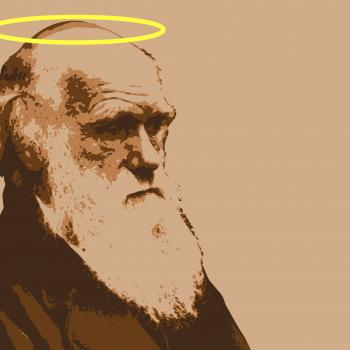Joel Daniels

Oxford University has announced that it will host a debate between famed science writer and atheist Richard Dawkins and Rowan Williams, the Archbishop of Canterbury. The event on February 23rd, which will be webcast live here, is sponsored by the Oxford theology faculty. The theme of the debate is “The nature of human beings and the question of their ultimate origin,” and it will be moderated by Anthony Kenny, a philosopher at the university.
As Dawkins is Britain’s most famous living atheist, and Williams is Britain’s most famous living Christian, the two have crossed paths publicly before. They met in 2005 on Dawkins’ radio show, and on a BBC Channel 4 forum in 2010 titled “The Enemies of Reason”. In addition, they have spoken of each other occasionally over the years. Williams, for example, has praised Dawkins’ writing about the process of evolution for its clarity and beauty, while also criticizing Dawkins’ theory of “memes” as “philosophically crass, undeveloped at best, simply contradictory and empty at worst.” For his part, Dawkins seems somewhat mystified by Williams, recognizing him as a first-rate intellect with an inexplicable belief in the mythological. Dawkins suggests that Williams’ artistic temperament may be to blame, saying that perhaps he doesn’t “understand the difference between literal truth and poetry, or literal truth and metaphor.”
It is difficult to predict what the tone of the debate will be. Religious constituencies often complain that Dawkins’ constructs a “straw God” that is easy to dismiss, while Dawkins counters with a charge of evasiveness on the part of his interlocutors. He complains that they construct a divine figure, amenable to science, in which no practicing religious person actually believes. Dawkins refers to this as religious believers trying to “have their cake and eat it, too.”
Dawkins has been less visible since his retirement from Oxford in 2008, and the vitriol between the “New Atheists” and religious apologists seems to have cooled off. When Oxford filled Dawkins’ previous post as Professor for the Public Understanding of Science with the mathematician Marcus du Sautoy, the appointment represented a change in the function of the position; du Sautoy has indicated that he will concentrate on the “wonder of science,” and less so on religion. (As a mathematician, he may feel the sting of religious groups less strongly than Dawkins did; few religious believers argue against the existence of prime numbers, du Sautoy’s specialty.) Whether this change in the cultural landscape will translate into a more high-minded debate remains to be seen.
Sophia Europa, the sponsor of the debate, was founded by the Theology faculty of Oxford in 2005 to support interdisciplinary study in science, the humanities, and theology. Its directors are Margaret Yee, a philosopher who works in epistemology and consciousness, and John Hedley Brooke, a prominent historian of religion and science. As Archbishop of Canterbury, Rowan Williams is the head of the Church of England and spiritual leader of the worldwide Anglican Communion, as well as being a theologian of some renown. Richard Dawkins was Oxford University’s Professor for Public Understanding of Science from 1995-2008, and author of many popular books on Darwinian evolutionary biology and atheism; a number of publications have recognized him as one of the most influential people in the world. Both received the D. Phil. from Oxford University.











